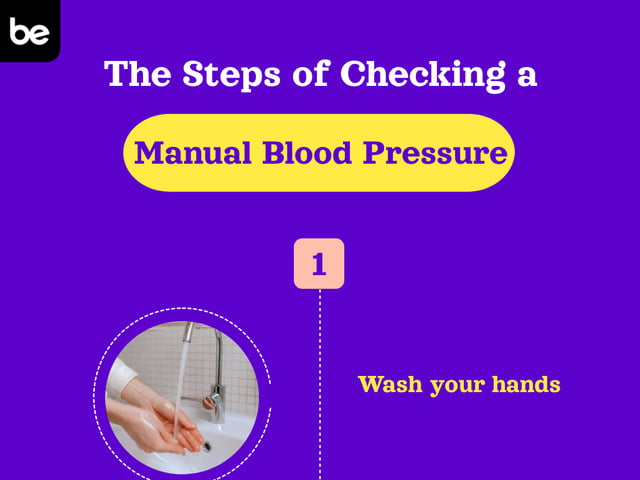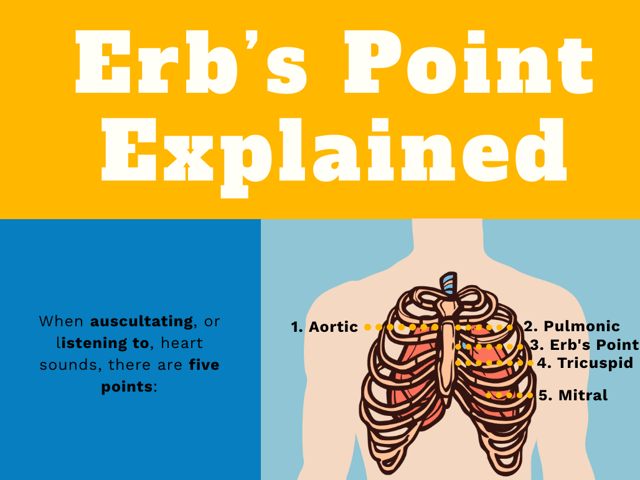
How to Do Well on the Medical Assistant Exam
If you’re planning to enter the medical assisting profession, passing a certification exam such as the Certified Medical Assistant (CMA), Registered Medical Assistant (RMA), National Certified Medical Assistant (NCMA), or the Certified Clinical Medical Assistant (CCMA) is crucial. Not only will this enhance your job prospects, but it will also offer you a significant advantage over non-certified candidates. This blog post will guide you through the essentials of these exams, scoring details, and tips to excel on test day.
Understanding the Different Medical Assistant Exams
There are several different exams you can take to become a certified medical assistant. Below are the four most popular:
Certified Medical Assistant (CMA)
Administered by the American Association of Medical Assistants (AAMA), the CMA exam is designed to validate the knowledge and skills of medical assistants in a broad array of tasks.
This exam comprises 200 multiple-choice questions, which are split into three categories: general (covering topics such as psychology, communication, professionalism, and medical law/ethics), administrative (including medical reception, patient navigator/advocate, practice finances, and medical business practices), and clinical (touching on topics like anatomy, physiology, infection control, patient intake, and clinical patient care).
Candidates have a total of 160 minutes to complete the exam, with a 20-minute break included, making efficient time management an essential part of preparation.
Registered Medical Assistant (RMA)
The RMA exam, offered by the American Medical Technologists (AMT), focuses on the multifaceted role of medical assistants in healthcare settings. It comprises 210 multiple-choice questions, with the content similar to the CMA exam but spread over different areas: Anatomy and Physiology, Administrative Medical Assisting, Clinical Procedural Tasks, and Client Patient Interaction.
Candidates have two hours to complete the exam, and there is an emphasis on real-world scenarios and problem-solving, testing not just theoretical knowledge but also practical application.
National Certified Medical Assistant (NCMA)
The NCMA exam is conducted by the National Center for Competency Testing (NCCT) and is designed to assess the competency of medical assistants in diverse clinical and administrative tasks. The exam includes around 150 scored items and 15 unscored pretest items. It covers several domains including Pharmacology, Phlebotomy, General Office Procedures, Law and Ethics, Medical Office Management, ECG and Other Diagnostic Tests, and Clinical Medical Procedures.
The exam lasts for three hours, and candidates can expect questions pertaining to real-life medical scenarios, thus emphasizing the importance of hands-on clinical experience as part of the preparation process.
Certified Clinical Medical Assistant (CCMA)
The CCMA exam, administered by the National Healthcareer Association (NHA), has a more concentrated focus on the clinical aspects of medical assisting, though it does assess administrative skills as well. The exam is 3 hours and consists of 180 questions, 30 of which are unscored.
Key areas of knowledge covered by the CCMA include clinical patient care, patient education, administrative assisting, communication, and medical law/ethics. Candidates have three hours to complete the test, underlining the importance of efficient time management and a deep understanding of clinical procedures and patient care.
Key Areas to Focus on While Studying for the Medical Assistant Exam
Regardless of whether you’re preparing for the CMA, RMA, NCMA, or CCMA exams, there are certain core topics that are integral to the medical assistant profession and are likely to be covered. Here are some key areas to focus on during your study sessions:
Anatomy and Physiology
Anatomy is the study of the structures of the body, while physiology explains the functions of these structures and how they interact. Given the depth of these subjects, there are specific areas to focus on:
Cardiovascular System: Understand the structure and function of the heart, blood vessels, and blood. Be familiar with the blood flow through the heart, and how oxygen and nutrients are transported throughout the body.
Respiratory System: Be able to describe the path of air from the nose/mouth to the alveoli in the lungs. Understand how oxygen and carbon dioxide are exchanged during respiration.
Digestive System: Learn about the process of digestion and the role of each organ in breaking down food and absorbing nutrients. This includes understanding the role of enzymes and the process of waste elimination.
Nervous System: Understand the structures and functions of the central and peripheral nervous systems. Learn about neurons, nerve impulses, and how the brain and spinal cord control the body.
Endocrine System: Know the major endocrine glands and the hormones they produce. Understand how these hormones regulate body functions such as metabolism, growth, and sexual development.
Musculoskeletal System: Be familiar with the different types of bones, muscles, and joints. Understand how they provide support, movement, and protection to the body.
Reproductive System: Learn about the reproductive organs, their functions, and the process of human reproduction and development.
Medical Terminology
Being proficient in medical terminology involves not only understanding the meaning of individual terms, but also the components of medical terms, such as prefixes, suffixes, and root words, which can help you decipher the meaning of new or unfamiliar terms. Here are some specifics to focus on:
Body Directions and Planes: Terms such as anterior/posterior (front/back), medial/lateral (towards the middle/away from the middle), superior/inferior (above/below), and sagittal/coronal/transverse (types of anatomical planes) are foundational.
Body Systems Terminology: Each body system has its own set of associated terms. For example, “cardio-“ refers to the heart, while “pulmo-“ or “pneumo-“ relates to the lungs.
Disease and Disorder Terminology: Understanding the common terms for various diseases and disorders, such as “myocardial infarction” (heart attack) or “pneumonia” (a lung condition), can help you recognize and understand medical conditions.
Procedure Terminology: Procedures often have specific terms associated with them, such as “laparoscopy” (a minimally invasive surgical procedure), or “venipuncture” (the process of drawing blood from veins).
Pharmacological Terminology: Be familiar with common terms associated with medication, such as “antipyretic” (fever reducing), “analgesic” (pain relieving), or “antihypertensive” (used to treat high blood pressure).
Remember, medical terminology is essentially a different language, and, like any language, it takes time and practice to become proficient.
Clinical Procedures
Clinical procedures form the backbone of a medical assistant’s day-to-day activities. It is necessary to have hands-on proficiency in a wide range of tasks:
Vital Signs: You should be able to accurately measure and record vital signs such as blood pressure, pulse rate, temperature, and respiratory rate. It’s also important to understand what these measurements indicate about a patient’s health status.
Patient Preparation: Part of your role will involve preparing patients for physical examinations or procedures. This could include explaining what the patient should expect, ensuring patient comfort, and positioning patients correctly.
Phlebotomy: Drawing blood is a common clinical procedure. You need to understand proper venipuncture techniques, as well as safety procedures to prevent contamination or infection.
Administering Medication: You may be responsible for administering medications to patients. This requires knowledge of different routes of administration (oral, intravenous, intramuscular, etc.), dosage calculations, and potential side effects.
Assisting with Exams and Procedures: You will often assist physicians during examinations or procedures. This may involve handing instruments, ensuring the physician has a clear field of view, or performing tasks under the physician’s direction.
Sterilization and Infection Control: It’s essential to understand how to sterilize instruments and maintain a clean and safe clinical environment to prevent the spread of infections.
Laboratory Tests: You may also perform simple laboratory tests, such as urinalysis or blood glucose testing, so understanding these procedures and what their results indicate is important.
Administrative Duties
Administrative duties can vary widely depending on the size and type of medical practice, but the following are some key responsibilities you may have:
Appointment Scheduling: You need to manage patients’ appointments efficiently to ensure a smooth workflow. This involves arranging new appointments, adjusting existing ones, and managing cancellations.
Patient Reception: You’ll often be the first point of contact for patients. This role requires excellent communication and customer service skills, as well as the ability to handle patient intake procedures like collecting personal and health information.
Medical Records Management: This involves maintaining accurate and up-to-date patient records, understanding how to use electronic health record (EHR) systems, and ensuring compliance with healthcare privacy laws.
Billing and Coding: Knowledge of medical coding is necessary to bill for services provided and to communicate medical, procedural, and diagnostic information with health insurance companies. Understanding ICD (International Classification of Diseases) codes and CPT (Current Procedural Terminology) codes is essential.
Healthcare Systems and Operations: You should have an understanding of how healthcare systems operate, including the roles of different professionals, departments, and external entities like insurance companies. This also involves understanding medical office policies and procedures.
Inventory Management: Keeping track of medical and office supplies, and reordering when needed, is another common task. This can include everything from bandages and disposable gloves to paper for the office printer.
Insurance Processing: Understanding different insurance plans, verifying coverage, and submitting claims are all part of this role. You may also need to assist patients in understanding their insurance benefits and responsibilities.
Medical Law and Ethics
In-depth understanding and adherence to legal and ethical guidelines are essential to maintaining trust and professionalism in healthcare. Key areas for medical assistants to focus on include:
HIPAA: The Health Insurance Portability and Accountability Act (HIPAA) protects patient privacy and confidentiality. Understanding this act is crucial, as violations can lead to serious legal consequences. Medical assistants should know what information they can share, with whom, and under what circumstances.
Informed Consent: Patients have a right to understand any procedures or treatments before they’re carried out. Medical assistants might need to explain procedures in layman’s terms, ensuring patients understand potential risks and benefits.
Professional Boundaries: Medical assistants should understand the professional boundaries that must exist between them and patients to prevent any form of misconduct or misunderstanding. This includes physical, emotional, and social boundaries.
Legal Responsibilities: Understand the scope of practice as a medical assistant to avoid overstepping professional boundaries. This can include knowing when to refer a patient to a nurse or doctor.
Ethical Codes: Familiarize yourself with the American Association of Medical Assistants’ Code of Ethics or the ethical guidelines of similar professional organizations. These codes provide a roadmap for how medical assistants should conduct themselves in their professional lives.
Pharmacology
Pharmacology is an important aspect of healthcare, and even though medical assistants aren’t pharmacists, a good understanding is required for their role:
Drug Classifications: Understand the major classes of drugs, including analgesics, antibiotics, antihypertensives, and more. This includes knowing the general effects, side effects, and contraindications for each class.
Drug Interactions: Certain drugs may interact with others, leading to harmful effects. It’s important to know common drug interactions and to ensure patients are informed about them.
Dosage Calculations: While medical assistants are not responsible for prescribing medications, they may need to calculate dosages for administration, such as for vaccines. It’s crucial to be able to do this accurately to avoid overdoses or underdoses.
Patient Instruction: A part of a medical assistant’s role is to explain to patients how to take their medications, including frequency, timing related to meals, and potential side effects to watch out for.
Brand vs Generic: Be aware of the differences between brand-name and generic medications and know when they are interchangeable.
Patient Interaction and Communication Skills
Clear and compassionate communication is key to building a good rapport with patients and ensuring they understand their healthcare journey:
Active Listening: This means fully focusing, understanding, responding, and then remembering what a patient is saying. It’s crucial for accurate record-keeping and for building patient relationships.
Empathy: Understand and share the feelings of your patient to establish trust and make them feel cared for. This doesn’t mean you need to take on their emotional burden, but recognizing their feelings can go a long way in providing comfort.
Explaining Procedures: Patients may be nervous about procedures or not understand why they are necessary. Being able to explain what will happen in a way the patient can understand can help alleviate fears and promote cooperation.
Cultural Sensitivity: Understand and respect cultural differences in healthcare. This can influence how patients understand their health, how they interact with healthcare professionals, and what treatments they are comfortable with.
Dealing with Difficult Patients: Not all patient interactions are straightforward. It’s important to have strategies for dealing with patients who are angry, scared, or non-compliant. Staying calm, listening to their concerns, and trying to find a mutually agreeable solution are all important skills.
Effective Strategies for Succeeding on Test Day
Develop a Comprehensive Study Plan Early
Start your preparation process as early as possible. Avoid procrastination and last-minute cramming, which can lead to unnecessary stress and insufficient grasp of the material. Instead, create a structured study schedule that covers all the necessary content areas over an extended period, such as several weeks or months.
This plan should factor in your daily routines and commitments, ensuring you have adequate time for both focused studying and breaks. Include both broad review sessions and more focused study times for complex topics. Regularly revising previously studied materials will help consolidate your understanding and improve your memory retention.
Master the Exam Structure
An intimate understanding of your chosen exam’s structure will give you an edge. Each test - whether it’s the CMA, RMA, NCMA, or CCMA - has a unique format and set of rules. Familiarize yourself with the number of questions, sections, time limits, and question types.
Knowing how the exam is organized can help you strategize more effectively, allowing you to allocate your time wisely during the test. For example, you might decide to quickly answer questions you’re confident about first, then go back to spend more time on challenging questions.
Utilize Study Guides and Practice Exams
Take advantage of study guides, flashcards, and practice tests designed to prepare candidates for their exams. Resources from reputable education companies mimic the structure of the actual exam and cover the same content areas, providing a realistic simulation of what you can expect on test day.
Regularly using these study aids can help you identify your strengths and areas of improvement, enabling you to tailor your study plan accordingly. Additionally, practice exams can improve your test-taking skills, like speed, accuracy, and problem-solving, which are crucial for timed exams.
Prioritize Physical Health and Well-being
Physical health plays a significant role in mental performance. Prioritize getting sufficient sleep, especially in the days leading up to the exam. Sleep is essential for memory consolidation and cognitive function.
On the day of the exam, eat a balanced meal to maintain steady energy levels. Avoid heavy or greasy foods that might make you feel sluggish or uncomfortable. Hydrate adequately but remember to balance fluid intake to avoid discomfort during the test.
Maintain a Calm and Positive Mindset
Test anxiety can hamper performance, even if you’re well-prepared. Cultivate strategies for managing stress and staying calm under pressure. This might involve mindfulness techniques, deep breathing exercises, or visualization methods.
Remember, the exam is an opportunity to demonstrate your knowledge, not a life-threatening situation. Trust in your preparation and ability. A positive mindset can improve focus, comprehension, and recall, aiding in your overall performance on the test.
Get Ready to Pass Your Medical Assistant Exam!
In conclusion, excelling in your medical assistant exam requires more than just memorizing facts. It’s about creating a well-rounded study plan that covers all key areas, understanding the format of the exam, regularly testing your knowledge with practice tests, and taking care of your physical and mental well-being. By approaching your study with a clear plan and maintaining a calm, positive mindset, you’ll be putting yourself in the best position to succeed. The journey to becoming a medical assistant is demanding, but with perseverance and strategic preparation, you can navigate your path with confidence. Believe in your ability to succeed, and soon, you’ll be providing valuable healthcare services as a certified medical assistant.
Keep Reading

Medical Assistant test Blog
How to Check a Manual Blood Pressure
One of the most common tasks you will need to perform as a medical assi…

Medical Assistant test Blog
What Is a Medical Assistant?
Are you considering a medical assistant career? You’re not alone. Curre…

Medical Assistant test Blog
Erb’s Point Explained
What is Erb’s Point? As a medical assistant, you will do a lot of ausc…